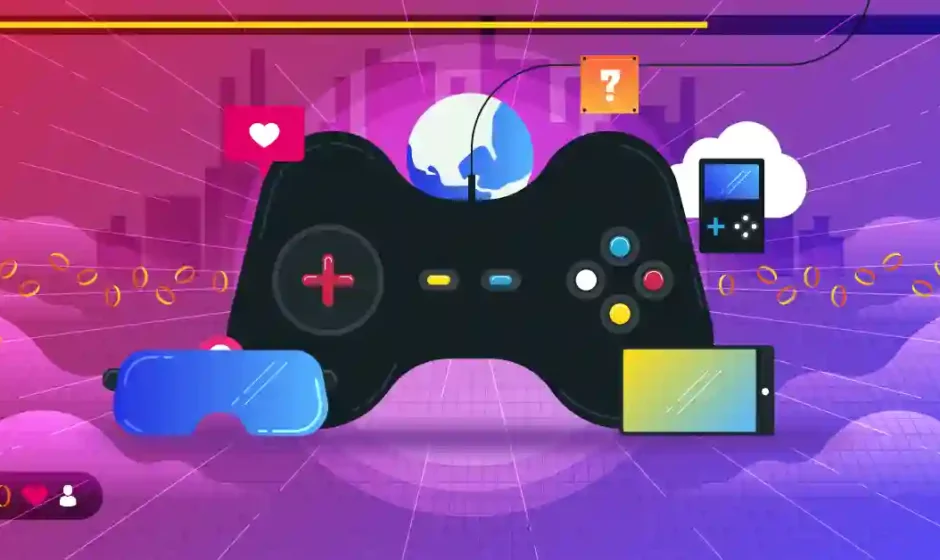Video games start out as fun, and if played in moderation can make learning fun for kids. From improved problem-solving to fostering social skills, video games offer a variety of benefits for kids.
Despite the stereotype of gamers holed up in dark rooms with no social life, gaming often encourages kids to engage with their friends both online and in-person.
1. They Promote Socialization
Video games encourage kids to interact with each other and communicate, even when they are not in the same room. This is a social activity that helps kids build connections and self-esteem, especially for children who have difficulty spending time with their peers face-to-face.
Unlike other social media, which can be addictive and promote harmful habits, playing video games can help kids develop positive coping strategies and social skills, according to experts. However, it is important for parents to monitor how much time their kids spend gaming and make sure that it does not crowd out other activities like schoolwork and physical activity.
2. They Help Kids Develop a Sense of Self
Video games help kids develop a sense of autonomy, connection and self-worth. These benefits carry over into real-life interactions with their peers and their ability to manage time.
Playing video games also helps kids develop visual-spatial skills by requiring them to figure out text instructions and navigate virtual worlds that challenge their ability to read maps and understand distance. This can improve reading skills and confidence, encourage creativity through writing and support family communication.
Even simpler games, such as Angry Birds, can boost moods, promote relaxation and ward off anxiety. However, be wary of games with in-game purchases and steep incentives to keep kids engaged.
3. They Help Kids Develop Critical Thinking Skills
Many parents and experts fear video games are a waste of time and some even think they corrupt the brain. However, kids who play video games can actually develop all sorts of valuable skills that benefit their real-world lives.
For example, some research shows that expert gamers make decisions 25% faster than non-gamers without sacrificing accuracy. They can also adapt to fast-paced fantasy environments and solve complex puzzles that often require logical levels of thought to complete. In fact, some schools have started using video games as a teaching tool.
4. They Help Kids Develop Visual-Spatial Skills
Playing video games improves kids’ visual-spatial skills, which are a critical component of learning. This is because they force players to learn how to navigate virtual worlds using keyboard and console controls, which requires coordination and short-term memory.
Many games also have rules, objectives and paths that require kids to think on their feet, and strategy games help them develop problem-solving skills. In fact, a long-term study found that adolescents who played strategic games had better problem-solving abilities and better school grades the following year.
While some games encourage aggression and violence, most don’t. But, it’s important to monitor kids’ gaming habits and limit their screen time.
5. They Help Kids Develop Communication Skills
Video games help kids develop their problem-solving skills by requiring them to overcome obstacles and make decisions that impact the game’s outcome. This type of gameplay is also beneficial for improving hand-eye coordination and fine motor skills.
Online multiplayer video games, like Minecraft, can teach kids how to communicate with other players. This can be beneficial for shy or socially anxious kids.
Many video games encourage creativity and self-expression, especially when they allow players to choose their in-game avatar or character skin. These features can inspire kids to explore their identities and express themselves in new ways.
6. They Help Kids Develop Teamwork Skills
While some parents worry that video games distract kids from schoolwork, many experts are surprised to find that they can actually boost literacy and communication skills. A new study from the National Literacy Trust found that kids who play games get a small boost in their reading skills.
Video games encourage pattern recognition and inductive reasoning, as well as testing hypotheses. Some even incorporate real-world learning, such as the language-learning game Duolingo or blood typing games that teach about disease transmission. And multiplayer games can teach kids about teamwork and communication, says a University of Pittsburgh study.
7. They Help Kids Develop Executive Functioning Skills
Studies have found that kids who play video games can improve their executive functioning skills, such as setting and completing tasks and regulating emotions. However, parents should encourage kids to use their game play as a teaching opportunity and help them transfer these skills into real life.
Expert gamers make decisions 25% faster than the average person without sacrificing accuracy, according to one study. They also learn to adjust their strategies and adapt to changing circumstances, like when a new enemy or scenario arises in a game.
Kids can develop their spatial skills when playing games that require them to navigate virtual worlds and landscapes. These skills are important for STEM fields.



